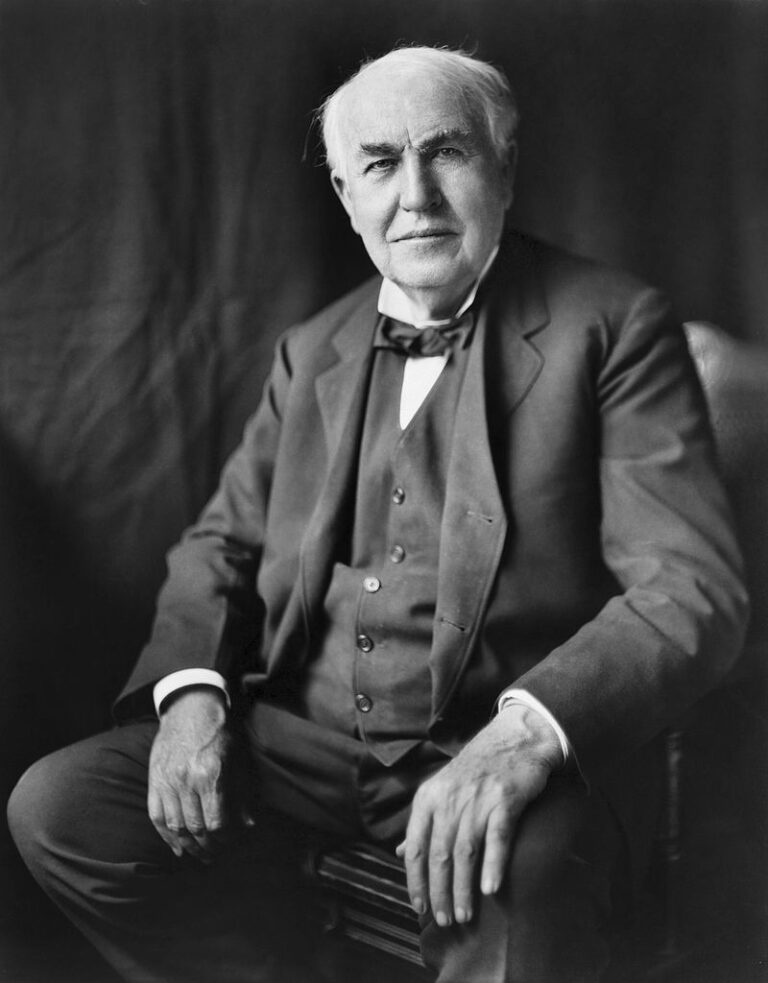Be a Difference Maker: 7 Ways to Support and Uplift Your Team
Make a Positive Impact in Your Workplace Today
The world is full of challenges and obstacles that can make it difficult for individuals to achieve their goals and fulfill their potential. As a leader, it is your responsibility to be a difference maker and to help those around you overcome these challenges and reach their full potential. Being a difference maker is all about inspiring and supporting others, helping them to overcome their obstacles, and encouraging them to keep moving forward.
The concept of being a difference maker can take many forms, but at its core, it is about making a positive impact on the lives of those around you. Whether you are a manager, a mentor, or simply a friend, you have the ability to inspire and encourage others to be their best selves.
In this article, we will explore six key ways that you can be a difference maker in the lives of those around you. From encouraging and uplifting others, to complementing and praising their efforts, to shining the light on their achievements, we will provide you with practical strategies and examples to help you become a more effective leader and difference maker.
By the end of this article, you will have a better understanding of how you can use your influence and leadership skills to make a positive impact on the lives of others, and you will be equipped with the tools and knowledge to help those around you achieve their full potential. So, let’s dive in and explore the first way to be a difference maker: encouraging someone.
Encourage Someone
Encouragement is one of the most powerful ways to be a difference maker. It can help boost someone’s confidence, provide them with the motivation they need to keep going, and give them the support they need to overcome any obstacles in their path.
To be an effective encourager, it is important to use positive language and to show a genuine interest in the other person’s goals and aspirations. You should also recognize their efforts and achievements, even if they are small steps towards a larger goal. By doing so, you can help build their confidence and keep them motivated.
One of the most important aspects of being an effective encourager is being a good listener. When someone is struggling, they often just need someone to listen to them and provide them with a supportive ear. You can provide them with this support by actively listening to what they have to say and responding in a way that shows you understand and empathize with their situation.
Encouragement can take many forms, from a simple “you can do it!” to more in-depth discussions about the other person’s goals and aspirations. Whatever approach you take, it is important to be sincere and genuine in your encouragement.
For example, imagine that one of your team members is struggling with a challenging project. They may feel discouraged and unsure of their ability to complete the task. As a leader and difference maker, you can provide them with the encouragement they need to keep going. You can start by acknowledging their efforts and progress so far, and then provide them with some guidance and support to help them overcome any obstacles they are facing. You can also provide them with some resources or tools to help them succeed, such as training or mentoring.
By providing them with this encouragement and support, you can help them feel more confident and motivated to complete the project. You can also help them develop the skills and knowledge they need to succeed in their future projects.
Being an encourager is a critical aspect of being a difference maker. By using positive language, showing interest in the other person’s goals, recognizing their efforts, and being a good listener, you can help others overcome their obstacles and achieve their full potential.
Lift Someone Up
Being a difference maker means helping others overcome their weaknesses and highlighting their strengths. When you lift someone up, you are providing them with the tools and support they need to succeed.
To lift someone up, it is important to acknowledge their strengths and help them build on them. This can be done by providing feedback on their work, recognizing their contributions, and highlighting their achievements. It is also important to help them overcome their weaknesses by providing guidance and support in areas where they may be struggling.
One effective way to lift someone up is to act as a mentor or coach. As a mentor, you can provide your expertise and guidance to help the other person develop their skills and knowledge. As a coach, you can help them set and achieve their goals, and provide them with feedback and support as they work towards those goals.
Another way to lift someone up is to provide them with opportunities to learn and grow. This can include offering training or development programs, assigning them to challenging projects, or providing them with exposure to new experiences and perspectives. By providing these opportunities, you can help them develop their skills and build their confidence.
In addition to these strategies, it is important to provide emotional support to the other person. This can be done by actively listening to their concerns, providing them with encouragement and feedback, and celebrating their successes. By doing so, you can help them feel more supported and motivated to succeed.
For example, imagine that one of your team members is struggling with a particular aspect of their job. As a leader and difference maker, you can lift them up by providing them with the support and guidance they need to succeed. You can start by acknowledging their strengths and contributions, and then provide them with some guidance and support in the areas where they are struggling. You can also provide them with some opportunities to learn and grow, such as training or development programs.
By lifting them up in this way, you can help them feel more confident and motivated to succeed in their role. You can also help them develop the skills and knowledge they need to be successful in their future endeavors.
Lifting someone up is an essential aspect of being a difference maker. By acknowledging their strengths, helping them overcome their weaknesses, providing them with opportunities to learn and grow, and providing emotional support, you can help them succeed in their roles and achieve their full potential.
Complement Someone
Complimenting someone is another powerful way to be a difference maker. It can boost someone’s self-esteem, provide them with the motivation they need to keep going, and give them the confidence they need to succeed.
To effectively complement someone, it is important to be specific in your praise. Rather than simply saying “good job,” provide feedback on what specifically they did well. For example, you might say “Your attention to detail on this project was outstanding” or “Your presentation was very engaging and kept everyone’s attention.”
It is also important to be sincere in your praise. People can tell when praise is insincere, and it can actually have the opposite effect of what you intend. Make sure your praise is genuine and heartfelt.
Finally, it is important to focus on someone’s actions, rather than just their qualities or traits. Rather than saying “you are a natural leader,” you might say “the way you managed the team through that difficult situation was very impressive.” This type of feedback helps the person understand what specifically they did well, and gives them concrete actions to build on in the future.
Complimenting someone can take many forms, from a simple “great job” to more detailed feedback on specific actions or qualities. Whatever approach you take, it is important to be sincere, specific, and focused on actions.
For example, imagine that one of your team members just completed a challenging project. As a leader and difference maker, you can complement them on their work by providing specific feedback on what they did well. You might say “Your attention to detail on this project was outstanding. Your ability to manage multiple tasks and prioritize your work is truly impressive.” This type of feedback can help build the team member’s confidence and provide them with motivation to continue doing well in the future.
Complementing someone is a powerful way to be a difference maker. By providing sincere and specific feedback on someone’s actions, you can boost their self-esteem, provide them with motivation to succeed, and give them the confidence they need to reach their full potential.
Inspire Someone to Keep Going
Being a difference maker means not only supporting and uplifting others, but also inspiring them to keep going when they face challenges or setbacks. Inspiration can come from many sources, including your own experiences, the experiences of others, or simply a shared vision of what is possible.
To inspire someone to keep going, it is important to first understand their goals and aspirations. By understanding what motivates them, you can better tailor your approach to inspire and motivate them. This can be done by asking open-ended questions, actively listening to their responses, and providing support and guidance as needed.
One effective way to inspire someone is to share your own story of overcoming challenges. This can be a powerful way to show someone that they are not alone in their struggles, and that it is possible to overcome obstacles and achieve their goals. By sharing your own experiences, you can help them feel more connected and motivated to keep going.
Another way to inspire someone is to offer encouragement and support. This can be done by providing positive feedback, offering guidance and advice, and providing resources and tools to help them succeed. By doing so, you can help them feel more confident and motivated to achieve their goals.
It is also important to help the person find their purpose and meaning in what they are doing. By helping them connect with the bigger picture and understand how their work is making a difference, you can inspire them to keep going and give them a sense of purpose and meaning.
For example, imagine that one of your team members is feeling demotivated and unsure of their ability to succeed. As a leader and difference maker, you can inspire them to keep going by sharing your own story of overcoming challenges, offering encouragement and support, and helping them find their purpose and meaning in their work. You might say “I’ve been where you are before, and I know it’s tough. But I also know that you have what it takes to succeed. I believe in you and I’m here to support you in any way I can. And remember, the work you’re doing is making a real difference in people’s lives. Your contributions are important and valued.”
By inspiring them in this way, you can help the team member feel more connected and motivated to keep going, and provide them with the support they need to succeed.
Inspiring someone to keep going is a critical aspect of being a difference maker. By understanding their goals and aspirations, sharing your own experiences, offering encouragement and support, and helping them find their purpose and meaning, you can help others overcome their obstacles and achieve their full potential.
Help Someone
Helping someone is another key aspect of being a difference maker. Whether it’s providing guidance, resources, or simply a listening ear, helping others is an essential part of leadership and can make a significant impact on the lives of those around you.
To effectively help someone, it is important to understand their needs and goals. This can be done by asking questions, actively listening to their responses, and providing support and guidance as needed. By understanding their needs and goals, you can tailor your approach to provide the most effective help and support.
One effective way to help someone is to offer your time and expertise. This can be done by providing guidance and advice, sharing your knowledge and experience, and offering feedback and support as needed. By doing so, you can help the person develop their skills and knowledge and overcome any obstacles they may be facing.
Another way to help someone is to provide resources and support. This can include providing access to training or development programs, offering financial assistance, or connecting them with other resources in their community. By providing these resources, you can help the person overcome any barriers to success and achieve their goals.
It is also important to act as a mentor or coach. As a mentor, you can provide guidance and support to help the person develop their skills and knowledge. As a coach, you can help them set and achieve their goals, provide feedback and support, and hold them accountable for their actions. By acting as a mentor or coach, you can help the person develop their full potential and achieve success in their personal and professional lives.
For example, imagine that one of your team members is struggling to manage their workload and balance their personal and professional responsibilities. As a leader and difference maker, you can help them by offering your time and expertise, providing resources and support, and acting as a mentor or coach. You might say “I understand that you’re going through a tough time, and I’m here to support you. Let’s sit down and talk through your workload and see how we can help you prioritize your tasks. I also know of some resources in the community that might be able to help you with your personal responsibilities. And let’s work together to set some goals and develop a plan to achieve them.”
By helping them in this way, you can provide the team member with the support and guidance they need to succeed and achieve their full potential.
Helping someone is an essential aspect of being a difference maker. By understanding their needs and goals, offering your time and expertise, providing resources and support, and acting as a mentor or coach, you can help others overcome their obstacles and achieve their full potential.
Praise Someone
Praising someone is another important way to be a difference maker. Praising someone for their achievements and contributions can help build their confidence, increase their motivation, and improve their overall performance.
To effectively praise someone, it is important to be specific and genuine in your feedback. Rather than simply saying “good job,” provide feedback on what specifically they did well. For example, you might say “Your ability to manage that project was outstanding. Your attention to detail and strong communication skills were key to its success.”
It is also important to praise the person in a timely manner. Don’t wait too long to provide feedback on their performance. Rather, provide feedback as soon as possible after the achievement or contribution has occurred. This can help reinforce the positive behavior and increase the likelihood that it will be repeated in the future.
Another effective way to praise someone is to provide public recognition of their achievements. This can be done in a team meeting, in a company-wide email, or even on social media. By publicly recognizing someone’s achievements, you can help build their confidence, increase their motivation, and improve their overall performance.
It is also important to provide constructive feedback when necessary. While it’s important to praise someone for their achievements, it’s also important to provide feedback on areas where they can improve. By doing so, you can help them continue to grow and develop their skills.
For example, imagine that one of your team members just completed a successful project. As a leader and difference maker, you can praise them for their achievement by providing specific feedback on what they did well. You might say “Your ability to manage that project was outstanding. Your attention to detail and strong communication skills were key to its success. I’m impressed with your dedication and hard work.”
By praising them in this way, you can help build their confidence and motivation, and reinforce the positive behavior that led to the successful project. You can also use this opportunity to provide constructive feedback on areas where they can continue to grow and develop.
Praising someone is a critical aspect of being a difference maker. By providing specific and timely feedback, publicly recognizing achievements, and providing constructive feedback when necessary, you can help build the confidence, motivation, and overall performance of those around you.
Shine the Light on Someone
Shining the light on someone is another powerful way to be a difference maker. By highlighting someone’s achievements and contributions, you can help build their confidence, increase their motivation, and inspire others to follow their lead.
To effectively shine the light on someone, it is important to first understand their achievements and contributions. This can be done by asking questions, actively listening to their responses, and gathering feedback from others who have worked with them.
Once you understand their achievements and contributions, you can shine the light on them in a variety of ways. This can include publicly recognizing their achievements, featuring them in company-wide communications, or even nominating them for awards or other forms of recognition.
It is also important to use positive language when shining the light on someone. Avoid using negative or critical language, as this can detract from the positive impact of the recognition. Instead, focus on highlighting their strengths and accomplishments, and providing specific feedback on what they did well.
Shining the light on someone can have a ripple effect throughout the organization. By highlighting the achievements and contributions of one person, you can inspire others to follow their lead and strive for similar achievements. This can help create a culture of recognition and appreciation, which can improve overall morale and performance.
For example, imagine that one of your team members just completed a successful project that resulted in significant cost savings for the company. As a leader and difference maker, you can shine the light on them by publicly recognizing their achievement in a company-wide communication. You might say “I want to take a moment to recognize the outstanding achievement of one of our team members. Through their hard work and dedication, they were able to complete a project that resulted in significant cost savings for the company. Their attention to detail and strong communication skills were key to its success. We are lucky to have them on our team, and I want to thank them for their contributions.”
By shining the light on them in this way, you can help build their confidence, increase their motivation, and inspire others to follow their lead. You can also create a culture of recognition and appreciation, which can improve overall morale and performance.
Shining the light on someone is a powerful way to be a difference maker. By highlighting their achievements and contributions, using positive language, and inspiring others to follow their lead, you can improve overall morale and performance within the organization.
Be the Leader Your Team Needs: Start Making a Difference Now
Being a difference maker in the workplace is not just about achieving individual success, but about supporting and uplifting those around you to help them achieve their full potential. Encouraging someone, lifting them up, complementing them, inspiring them to keep going, helping them, praising them, and shining the light on them are all powerful ways to make a difference in the lives of others.
As a leader, it is important to understand that your actions and words have a significant impact on those around you. By being intentional about how you interact with others, you can create a positive and supportive work environment that encourages growth and development.
Encouraging someone means showing them that you believe in their abilities and supporting them as they work towards their goals. This can be done by providing guidance and feedback, offering resources and support, and celebrating their achievements.
Lifting someone up means providing them with the tools and support they need to succeed, acknowledging their strengths and helping them build on them, and helping them overcome their weaknesses.
Complementing someone means providing specific and genuine feedback on their achievements and contributions, focusing on their actions rather than just their qualities or traits, and providing feedback in a timely manner.
Inspiring someone to keep going means understanding their goals and aspirations, sharing your own experiences of overcoming challenges, offering encouragement and support, and helping them find their purpose and meaning.
Helping someone means offering your time and expertise, providing resources and support, and acting as a mentor or coach.
Praising someone means providing specific and timely feedback, publicly recognizing achievements, and providing constructive feedback when necessary.
Shining the light on someone means highlighting their achievements and contributions, using positive language, and inspiring others to follow their lead.
As a difference maker, it is important to remember that your actions have a ripple effect throughout the organization. By supporting and uplifting those around you, you can create a culture of positivity and growth that benefits everyone.
In conclusion, being a difference maker in the workplace requires intentionality, empathy, and a commitment to supporting and uplifting others. By following these strategies, you can create a positive and supportive work environment that encourages growth, development, and success for everyone.







